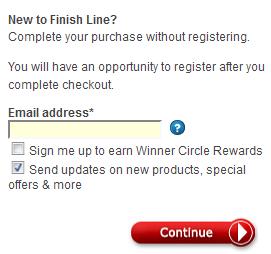In his book “Predictably Irrational,” Dan Ariely recounts one of his most famous observations regarding the prevalence of organ donors across different countries. You can read more about the organ donation phenomenon on his blog, but the basic gist is that countries with an opt-out model have significantly more citizens registered as organ donors. Compare this to places like the United States, which has an opt-in model (you have to check a box on the back of your license to become a donor). The proof is in the pudding- people are lazy. That’s oversimplifying it a lot, but the bottom line is that the path of least resistance is usually the most appealing to the majority of people. Making that extra check mark or reading every line on a form is not worth those precious seconds of mental processing.
Why do I bring up this study? Because the propensity to gravitate toward inaction cuts both ways. By changing the options, you can influence how users opt in or opt out of actions/services at drastically different rates. But to quote Spider-Man’s fictional uncle, “with great power, comes great responsibility.” As I’ll explain later, the ability to affect actions doesn’t always help in the way you might have hoped.
Let’s start with a simple example: consider your typical eCommerce shopping cart system. Buyers reach a registration screen, where they have the option of signing up for a free, optional newsletter. There will be a percentage of people who completely glaze over the option. There will also be a percentage who will actively check or uncheck the box to indicate whether or not they want it. If you only care about more subscriptions, a pre-checked box is the way to go.
Where can a pre-checked box go wrong? Just ask all the people who, at one point or another, ended up with a Yahoo or Ask toolbar on their computers by accident simply because they wanted to install a program or browser plugin. While it is perplexing to novice users who can’t figure out why they’re losing web browser real estate, it is downright infuriating for computer savvy individuals who impatiently click the “Next” button waiting for installation to begin. This is where you can hurt your brand. Your service can be labeled spammy or adware. Some will view it as an underhanded (and downright desperate) tactic to have people use your product. It also violates people’s privacy (as users did not explicitly give permission to install, which is, in a way, kind of like the opposite of organ donation).
 So back to newsletters. Everybody wants to believe that they have the best, most useful, awesome newsletter; but this simply is not the case. For example, I used to subscribe to Flavorpill, but realized it consisted mostly of thinly veiled advertisements and self promotions. On the other hand, I know many people who swear by Gilt Groupe’s newsletters on daily deals and spend inordinate amounts of money as a result. If you actually do have a good newsletter, then you’re fine. You might get some accidental subscribers who recognize the quality of your work and its utility, and you’ll also have subscribers who receive exactly what they were expecting.
So back to newsletters. Everybody wants to believe that they have the best, most useful, awesome newsletter; but this simply is not the case. For example, I used to subscribe to Flavorpill, but realized it consisted mostly of thinly veiled advertisements and self promotions. On the other hand, I know many people who swear by Gilt Groupe’s newsletters on daily deals and spend inordinate amounts of money as a result. If you actually do have a good newsletter, then you’re fine. You might get some accidental subscribers who recognize the quality of your work and its utility, and you’ll also have subscribers who receive exactly what they were expecting.
But take for example concert ticket e-mails. I subscribe to Ticketmaster and LiveNation for the off-chance that I’m unaware that a band I like is playing in my area. Both do DMA-style targeted newsletters which are also genre-specific. But I also end up randomly getting single e-mails about a Nickelback or Jonas Brothers concert. Every time I get one of those, I want to unsubscribe.
There are many ways to create a bad newsletter: be too text-heavy; be too generic in your content offerings; don’t include any accompanying visual aids/pictures; don’t make your links readily available and clickable; don’t include a call to action; include important information below the fold, etc. Those are mostly design aspects, but there’s also an important marketing piece- who do you actually want subscribing to your services?
There are so many ways to demo target: retarget users and a serve popup ads; run SEM campaigns on specific keyword phrases that indicate who a person is likely to be; utilize social media channels for awareness campaigns to reach certain types of readers, etc. With all of these other, much better, tools at one’s disposal, is it really prudent to automatically opt everybody in every time? Are you even using the best metrics? That is, do subscription events matter when 75% unsubscribe after their first email? What if the people who stay subscribed never click through to the site? Retention rate would be a lot better KPI, but still not the most efficient. If you’re not sure who wants your content delivered to their inbox, then let users opt in, and also do a better job of targeting them across different interactive media.
Also, stop trying to make us install your resource-hogging toolbars!
My next blog post will single out a particular company that follows the opt-out model (and alienates a lot of users in the process). Are they too big to fail? Are they doing evil? Stay tuned to The Frequency to find out!


